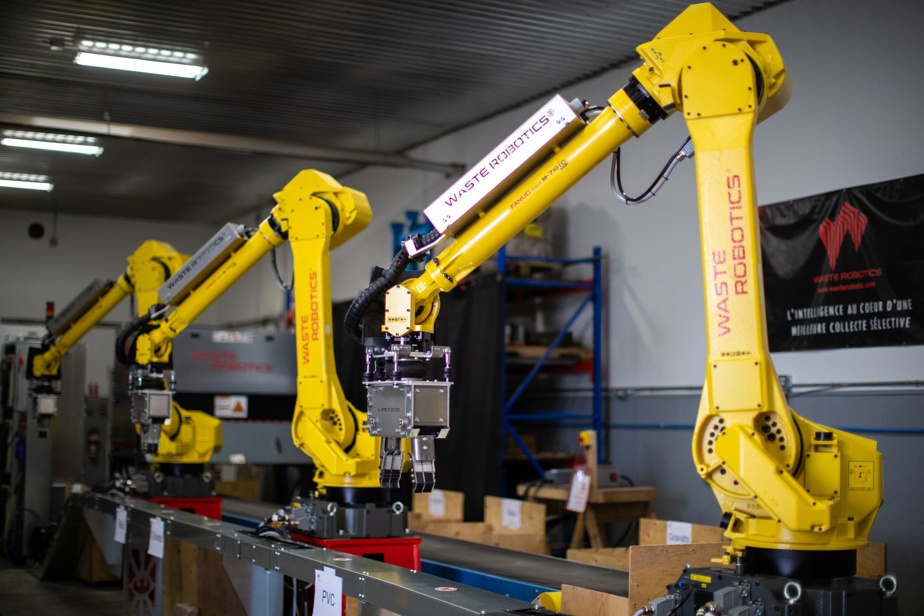Young clean technology companies are multiplying; Fortunately, a host of programs exist to help them develop. Overview.
Since its founding in 2016, Waste Robotics has benefited from innovation support programs that have enabled it to refine its cutting-edge robotic technologies aimed at making recycling facilities more efficient and safe – today, the company has around thirty employees export its systems using artificial intelligence to Canada, the United States, Italy, France and even Australia.
Driven by a team eager to change the world, one robot at a time, Waste Robotics continues to push the limits of its technologies and is now tackling residual household waste.
In Boisbriand, in the Basses-Laurentides, the Enviro Connexions facilities operate the robotic sorting system created by Waste Robotics which extracts recoverable materials – returnable bottles, plastic, metal, wood, rock, etc. – garbage.
“This will be a big first! “, rejoices in an interview with the co-founder and president of Waste Robotics, Michel Laforest, who says he “flipped” when he noticed the quantity of recoverable materials that ended up in waste.
“Our goal is to be able to save the world by recovering everything of value and putting it back into the loop of the circular economy. When I get up in the morning, that’s what I think about. It’s awesome ! », says the jovial president, experienced in environmental technology management.
“We had advanced our technology so much that we were able to take one more step: to find what is recoverable in household waste. »
As an innovative company, Waste Robotics does not hesitate to invest the necessary resources and take risks in order to break into new markets, he says.
Michel Laforest is looking forward to seeing the results of the current project, supported by the Défis Innovation Québec from Écotech Québec, intended for clean technology experimentation projects offered in collaboration with the Ministry of the Economy, Innovation and Energy.
By allowing companies to test the performance of their new technologies, such programs are undoubtedly valuable to them. After all, innovating comes with an element of uncertainty, as the results do not yet exist, says Mr. Laforest.
“The Quebec Innovation Challenges give public and parapublic organizations the opportunity to become showcases of innovation and allow start-ups to refine their innovations before embarking on a broader commercialization process,” explains the president and head from the management of Écotech Québec, Isabelle Dubé-Côté.
“Many initiatives of this type support companies that create clean technologies at pivotal moments in their development,” she adds.
Programs abound, says Mr. Laforest, citing the federal Sustainable Development Technologies Canada and the Industrial Research Assistance Program of the National Research Council of Canada.
In Quebec, he mentions Technoclimat and INVEST-AI, from IVADO Labs, as well as those from Recyc-Québec, which “address certain gaps, certain gaps in the recycling ecosystem,” specifies the president.
In addition to its Innovation Challenges, Écotech Québec offers INNO and Les Grands Rendez-vous.
The programs have helped Waste Robotics not only in terms of research and development, but also in terms of visibility across the Atlantic and exports, underlines its president.
